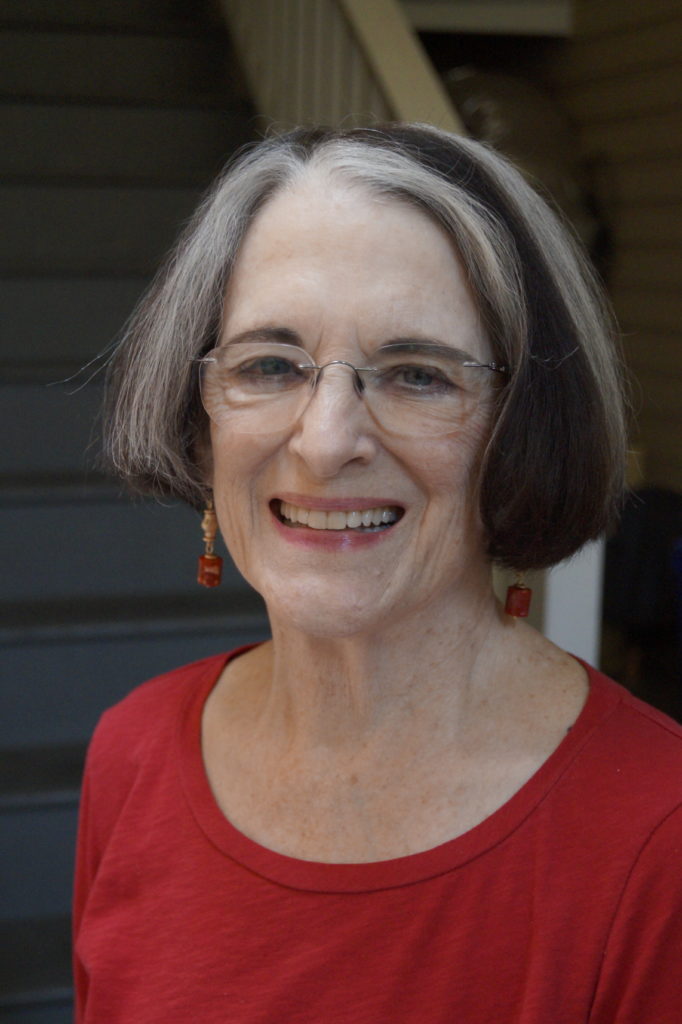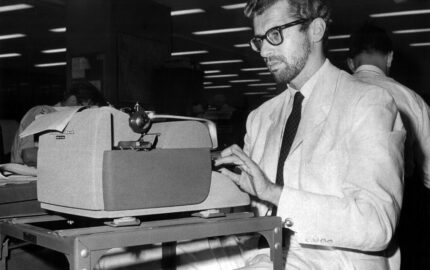Cornelia Bowling Carrier, one of the first environmental reporters in the South and a 1976 Nieman Fellow, died April 8 at the age of 78. Her Nieman classmate Peter Behr wrote this obituary, with comments from some of their fellow fellows:
Cornelia Bowling Carrier, a pioneering environmental reporter for The Times-Picayune in New Orleans, a 1976 Nieman Fellow, and later tourism director for the state of Louisiana, died April 8, in Charleston, South Carolina. She was 78.

Born in Atlanta, Georgia, Cornelia grew up in Nashville, Tennessee, and received degrees from Tulane University and the University of California, Berkeley.
The 1969 Santa Barbara oil spill, the first Earth Day rallies a year later, and a burst of federal laws and regulations, elevated environmental protection to front-page rank in the 1970s. Cornelia was one of the first reporters in the South to focus on the environment, The Post and Courier in Charleston, South Carolina, noted a decade ago.
Her reporting on the threats to Louisiana marshlands from real estate development led to her Nieman fellowship. She returned to The Times-Picayune, continuing to expose environmental hazards as reporter, columnist and editorial writer. Her appointment as the state’s tourism director followed, and later, Cornelia taught at The University of Texas and the College of Charleston.
Her concern for the environment never waned. Cornelia wrote recently to The Post and Courier advising that the city “should place a moratorium on all development of sea-level land until they have a plan in hand to protect those developments from tides that will inevitably rise year after year.”
Jessica Hardesty Norris, who followed Cornelia as president of the Charleston Audubon, recalled, “She was completely uninterested in anything shallow and had a very fierce reputation from having resurrected the organization from near death.” At the same time, her friends loved her charm and loyalty and her tender concern for wildlife, Norris said.
Nieman classmate Lester Sloan said, “She was a globe-hopping bird watcher who tolerated my desire to ‘capture’ them with a camera. Her library reflected an interest in everything from crystal to voodoo. She peppered her conversation about people with metaphors that reflected her various interests.”
Paris was one of Cornelia’s favorite destinations and she often stayed with Nieman classmate Robert Fiess and his wife Inge. She was “a good, true friend, with whom we shared precious moments. Her intelligence and her sense of humor made our encounters always interesting and with peals of laughter,” they wrote.
Nieman classmate Arnold Markowitz recalled a visit from Cornelia two or three years ago when she stopped in Miami after a birding trip in Cuba. “I drove her around in rural areas to find South Florida birds she wanted to see. I’ll never forget how thrilled she was to see limpkins up close.”
In her final years, Cornelia battled cancer with toughness and wry humor. “One of Cornelia’s favorite expressions regarding foreign travel was, ‘I got that behind me,’” Lester Sloan said. “She embraced her last journey as a satisfied traveler.”


